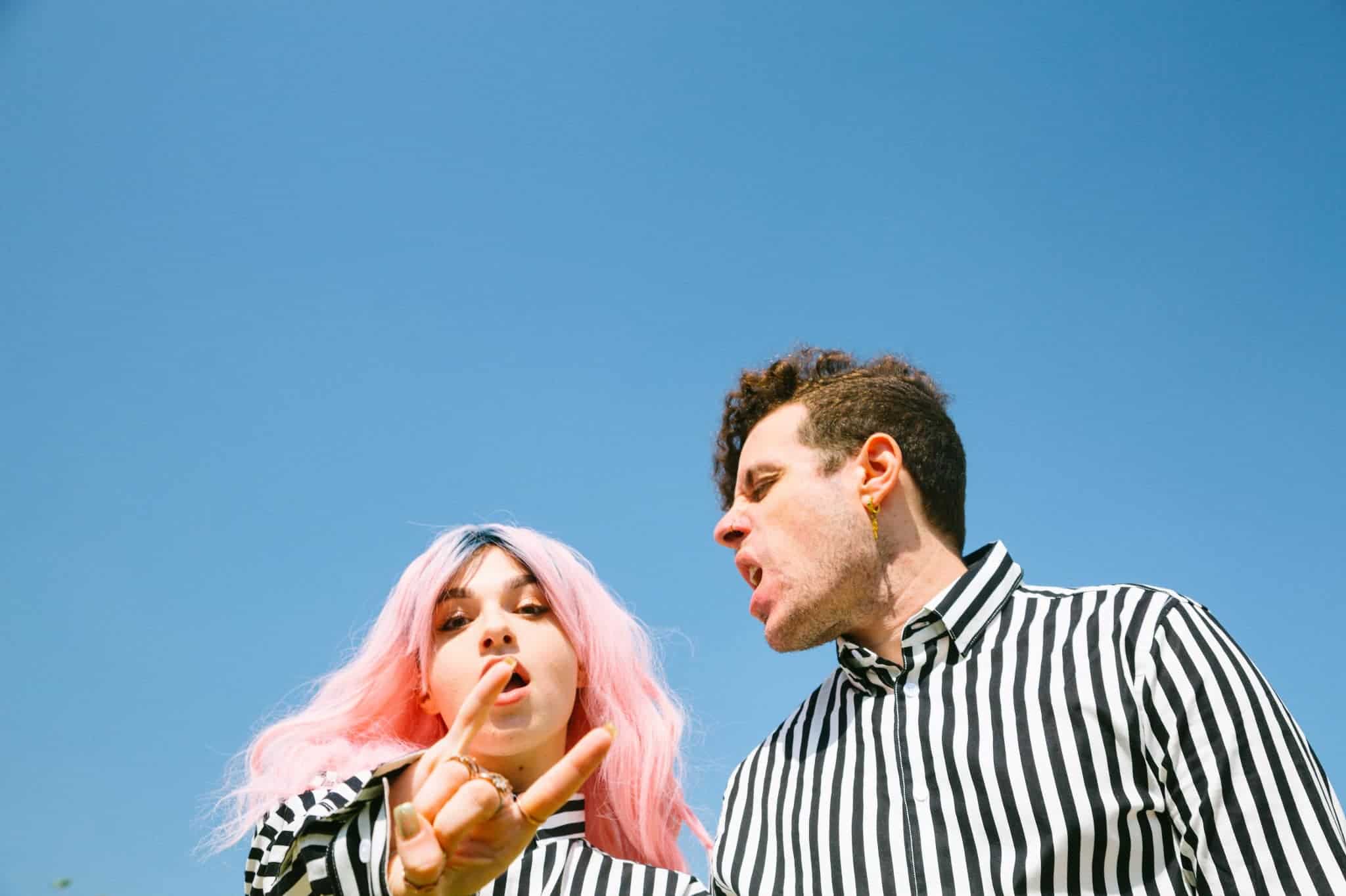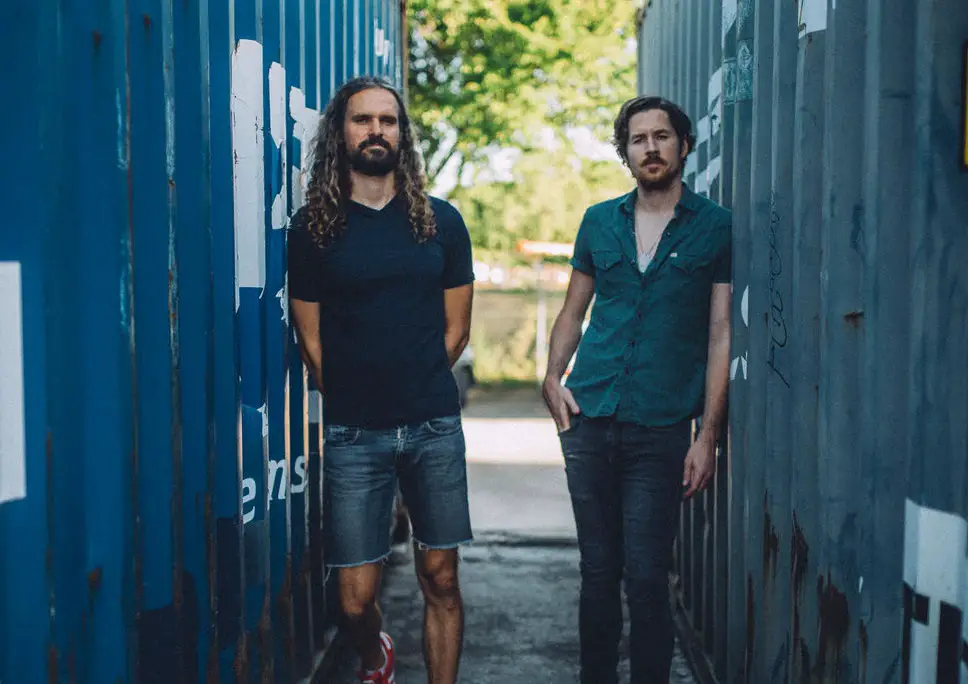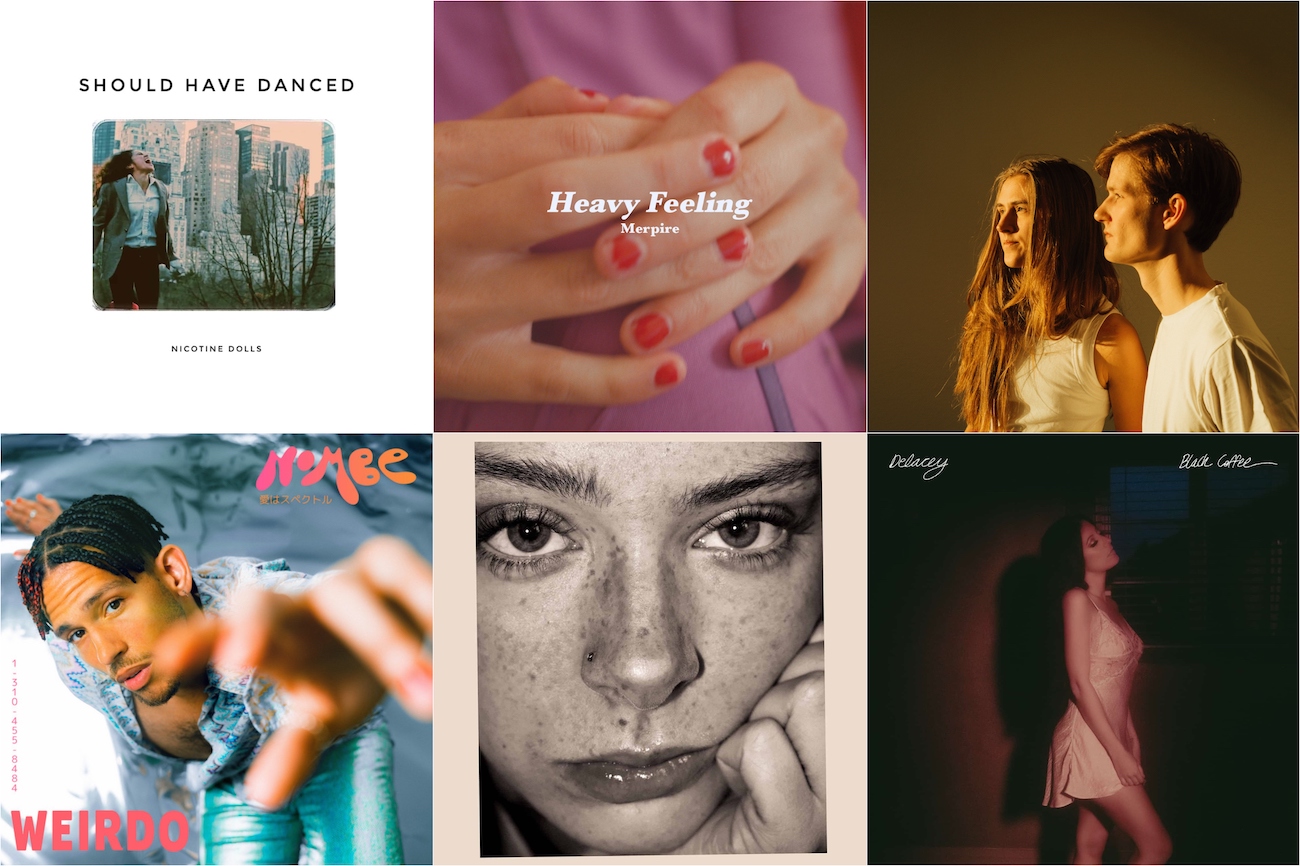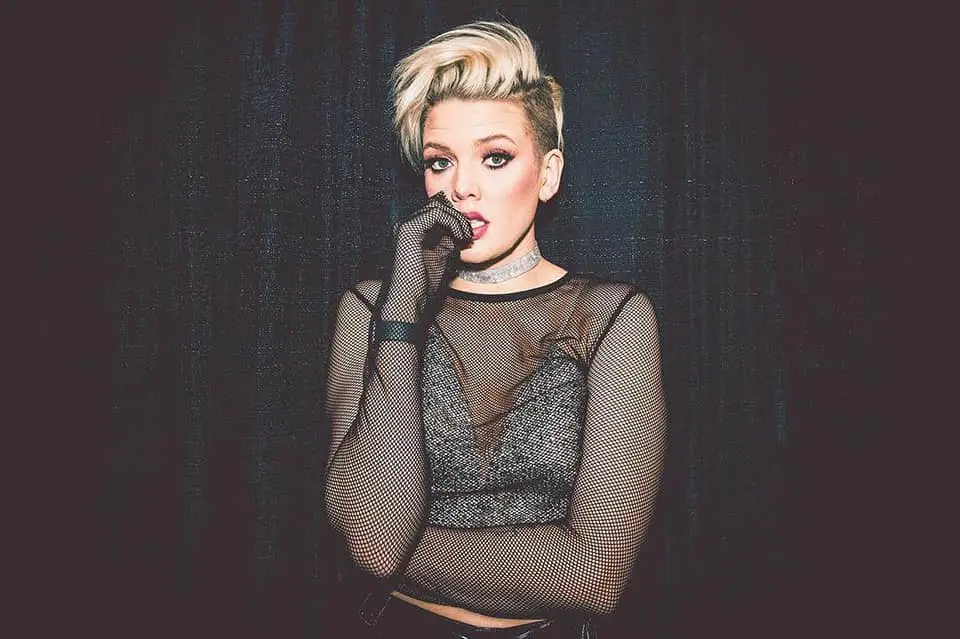South Korean singer/songwriter eundohee dives into the beautiful depths of her new EP ‘Kookaburra,’ a record of awakening and inner reckoning that uplifts through achingly intimate and spirited indie folk music full of heart, hope, and raw, unfiltered emotion.
Stream: “Ah Ha Ha” – eundohee
There’s something to be said about the power of music to influence our mood: A sad song can break us down, just as a happy one can build us back up again – and that’s exactly what South Korean singer/songwriter eundohee had in mind when writing and recording her new EP. A cathartic, visceral record of awakening and inner reckoning, Kookaburra lifts us up through achingly intimate and spirited indie folk music full of heart, hope, and raw, unfiltered emotion.
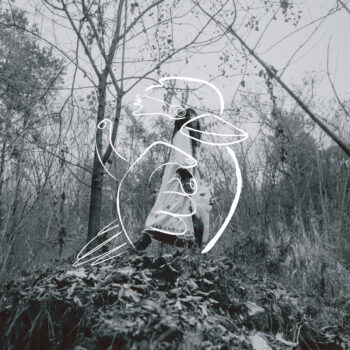
Unripe mangoes
Do you want me to eat them?
Ce que je veux, c’est le calme
I know what you don’t know
Sour candies in your hands
Do you want me to taste them?
Quatre-vingt-dix-huit
Are you gonna make me keep counting?
I just laugh
Ah hahaha
Ah hahaha
– “Ah Ha Ha,” eundohee
Released May 19, 2023 via Beeline Records, Kookaburra is a hauntingly beautiful, intentional, and invigorating exhale from an artist quickly finding her voice in the alternative space. It’s also an enchanting, entrancing introduction for those unfamiliar with South Korea’s eundohee, whose music bridges indie folk / indie rock divide.
eundohee debuted in 2018 with the three-track EP Weak, and has been spellbinding audiences ever since; she released her sophomore EP All in 2019, followed by the three-track My Neighborhood in 2020 and her debut album, Unforeseen, in 2021. Arriving two long years later, Kookaburra marks an artistic evolution and expansion as eundohee delves deeper into her own psyche and past experiences than ever before, using her music not only as a vehicle for sonic expression, but as a vessel for therapeutic release as well.
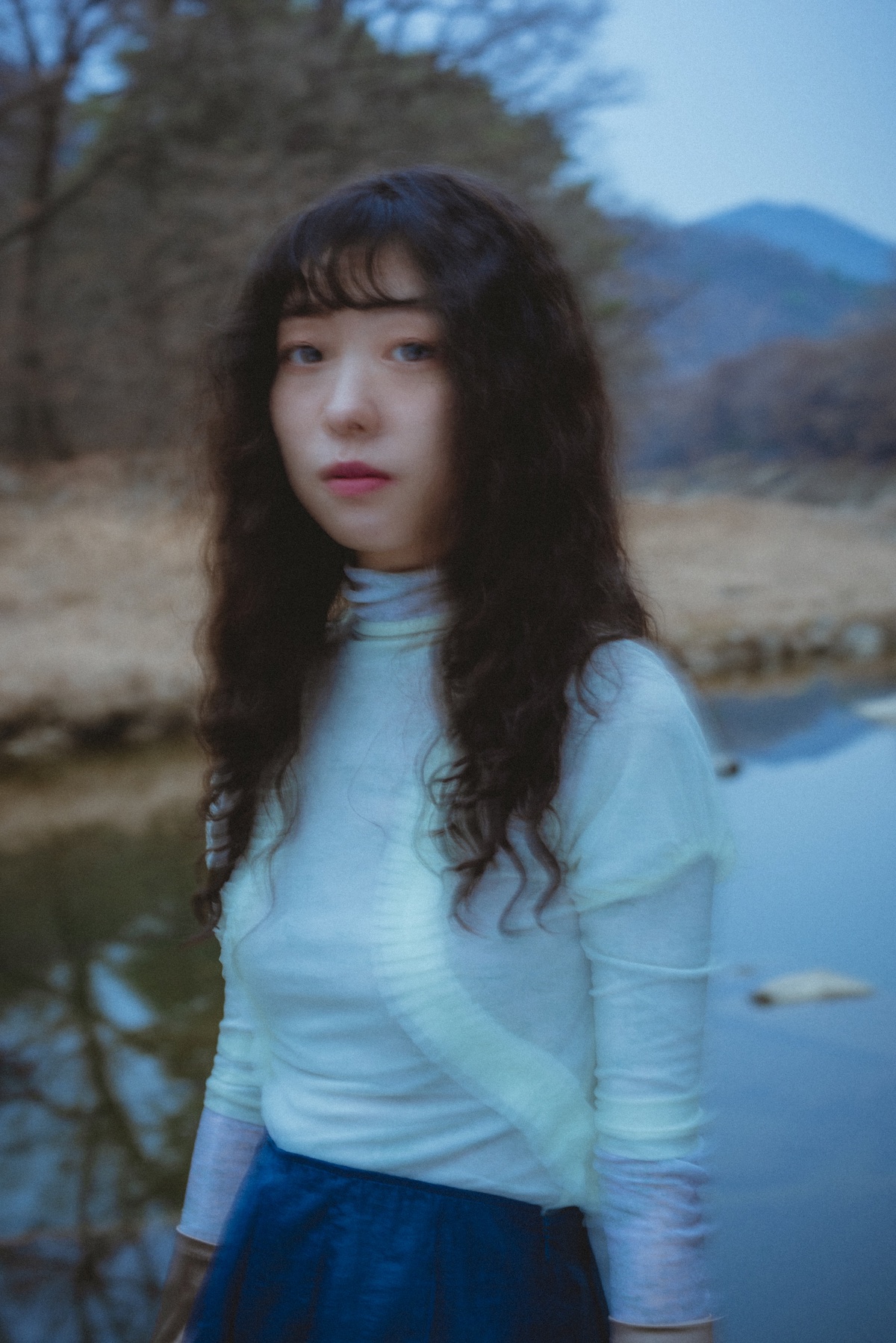
“The songs on Kookaburra sound quite different from my previous songs,” eundohee admits in conversation with Atwood Magazine. “The way I wrote, recorded, and got feedback was all a little bit different from before. It was my first time working with a label so I shared a lot of ideas about this record with the team from Beeline Records. I had been an independent artist for about 5 years so I got used to making music alone without any feedback. I think that I had been afraid that working with a label would mean giving other people control over my music/songwriting style but now I know it doesn’t work like that. Also, I learned that if I want to move forward as an artist, it is important to accept other people’s feedback. My band members and the engineer Brad who I worked with on the EP are all very creative. I was inspired by their ideas, such as recording live as a band, adding extra guitar/bass lines, and drum rhythms that I never thought of myself. I feel very fulfilled with the outcome.”
“When I started working on this EP I didn’t know what kinds of songs I wanted to make. It has only been around 6 months since I put out my first full-length album, Unforeseen. On top of that, I fell into a slump during this period. I felt lost, lonely, and unmotivated. It was like a disaster. However, I knew if I wanted to get out of it, I should write something music, lyrics, or chords. Songs in Kookaburra are more optimistic, candid, and happy because I wanted to get over the slump… A lot of people that listened to my previous releases used the expression of being “covered by a fog.” Personally, I feel that these new songs mark the lifting of that fog.”
“From the start, I wanted to change my songwriting approach on this record,” she adds. “I used to put first priority on the sound rather than the lyrics. Looking back I don’t think I had many things to convey to people with my last record, but this time around, I had a lot of feelings and stories to share.”
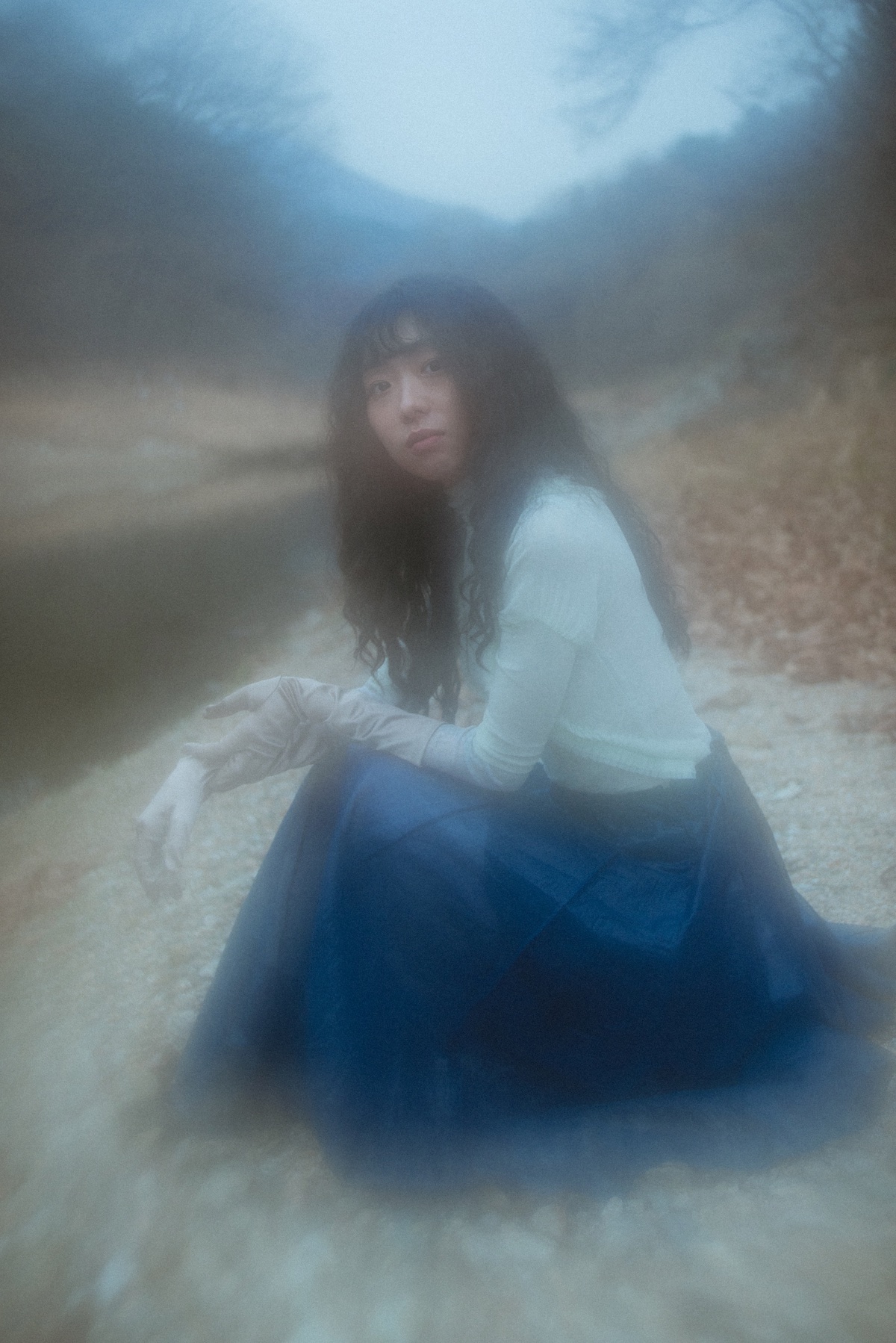
Eundohee describes Kookaburra with the words “happy,” “dancing,” and “laughingbird.” For her this record is one filled with both sonic and emotional light. “I don’t know why, but when I came up with this record, this bird always popped up in my mind,” she smiles.
The EP’s title itself a direct reference to that laughingbird she’s speaking of.
“After I finished recording all the songs at the end of last year, I wasn’t sure how to title the album,” she explains. “For some reason, I wanted to use a bird’s name. I like to watch birds, especially ducks because in my neighborhood, there’s a small stream and unfortunately apart from there, I don’t get to see many birds. They can fly and swim, so they get to explore the sky, the streams, and rivers. They look so adventurous and free, so I wanted to title the album as a bird’s name because they represent the things I have wanted to be throughout my life.”
“So I got together with people from my label to discuss a name. Jin suggested the name ‘Kookaburra’. I liked the way it sounded and then once I knew more about what kind of bird it was, I decided to use it. The Kookaburra is nicknamed the Laughingbird, isn’t it interesting? Also one of the tracks from this EP is ‘Ah Ha Ha,’ so I thought it linked in nicely with that.”
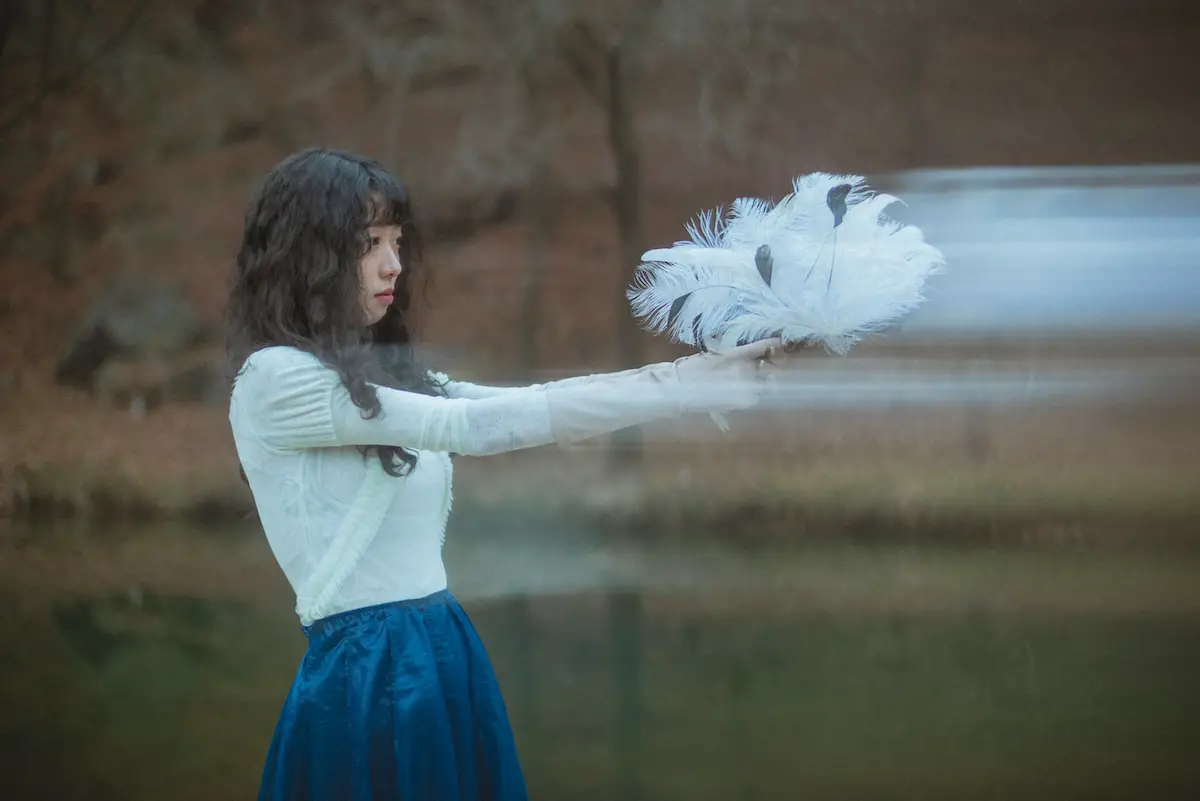
The sixteen-minute, five-track Kookaburra may not be an all-encompassing, “definitive” eundohee record, but it faithfully captures the artist at a moment in time when she needed her creative outlet the most.
“Kookaburra reflects some aspects of me, but not 100%,” she says. “It is an indie folk rock album, but some of the tracks I wrote are electronic music or bedroom pop. This record showcases a different version of me than before. I’m still expanding my artistry by making various songs in different styles (you will see that with my next release later this year). But Kookaburra contributed to my development because as I said, I grew up more as an artist after finishing this EP.”
eundohee teased her EP earlier this year with lead single “Hummingbird,” a moody indie folk whisper that fills the room with the weight of a shout. One imagines that the inspiration for this track may have struck from learning that hummingbirds are the only species that can fly backwards; in many ways, the poetry writes itself: eundohee aches with raw, heartfelt, and exposed emotion as she compares herself to these finger-sized flying phenomena, asking, “Can I be a hummingbird? I’ll do my best anyway,” in a chorus that feels as soft as it is stunning.
They can fly backwards and upside-down
Spreading the lightness of life
Their scattered feathers are transparent
Without any regret
“I would say the lyrics of Hummingbird are my favorite, especially the chorus part, ‘Can I be a hummingbird, I’ll do my best anyway.” eundohee reflects. “I’m the kind of person who is quite self-conscious, but hummingbirds seem to be free from everything. I actually wrote the lyrics to keep them in my mind. I tend to be a little bit obsessed with the outcome whatever it is I am doing. Maybe I was so cautious about what other people thought of me, but I wanted to change a little bit. I focused on the present while I was writing Hummingbird. I enjoyed the whole process of it. I did my best and I felt so nice.”
“Since the track was released, a lot of people have told me they like the lyrics as well. They say it doesn’t sound pushy or burdensome. I wanted to convey those kinds of senses. And now I’m so happy that I can connect with listeners by my lyrics which I love.”
Can I be a hummingbird
I’ll do my best anyway
Can I be a hummingbird
I’ll do my best anyway
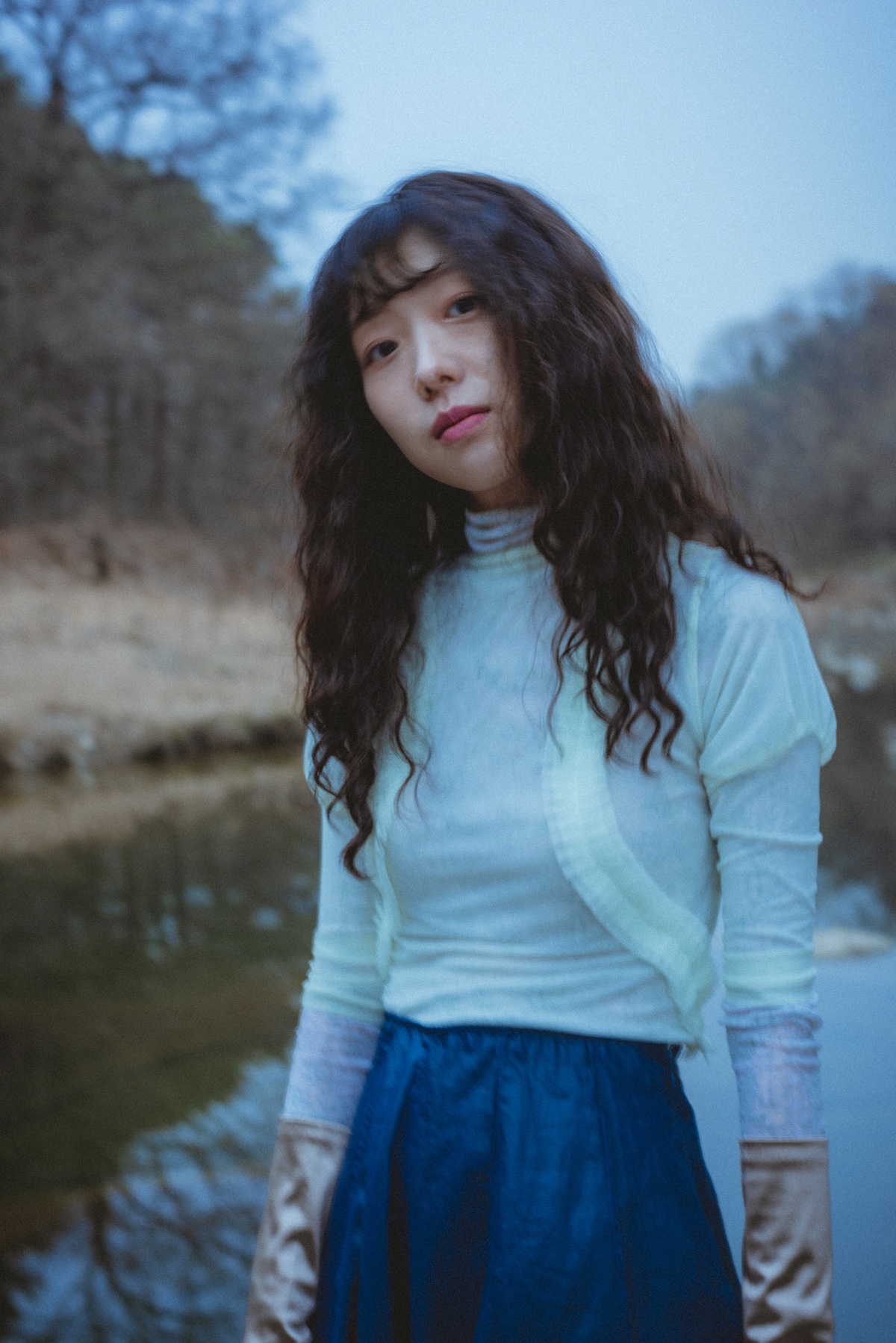
It takes a delicate touch to evoke the sense of wonder, vulnerability, and longing that radiates throughout eundohee’s music.
She sets a powerful scene with the EP’s glistening opener “Nothing Lasts Forever,” but the record’s true highlight is its captivating middle track, “Ah Ha Ha” – a hushed indie rock fever dream that’s half-sarcastic, half-confessional, and fully intoxicating.
It’s a personal favorite for eundohee as well.
“In the song ‘Ah Ha Ha’ there are some French lyrics. A friend of mine asked me the meaning of ‘Quatre-vingt-dix-huit’. It’s funny because it means 98 in French. I just randomly picked one of the hardest French numbers for me to say. We all know what 98 is, but when it is in a foreign language, it becomes all new to all of us.”
“‘Ah Ha Ha’ is a sarcastic song about people who look down on younger people,” she continues. “In South Korea, there’s a strong pecking order within the companies. Older people who have worked for a long time tend to ignore younger people’s opinions. And in this song, there are two people, a young man and an old one. The young man can speak Korean, English, and French whereas the old man speaks only one language, Korean. The young man counts numbers in French when the old man nags at him, the old man doesn’t know what it means.”
“The young man might actually have more experience/knowledge than the old man as he can talk to various people in three languages. But the old man doesn’t accept it because he has a narrow perspective. I just wanted to imply that there is always something that someone might be better than us, we should not look down on anyone, whatever the circumstance, and that people’s opinions can always be important, no matter how small the thing. “
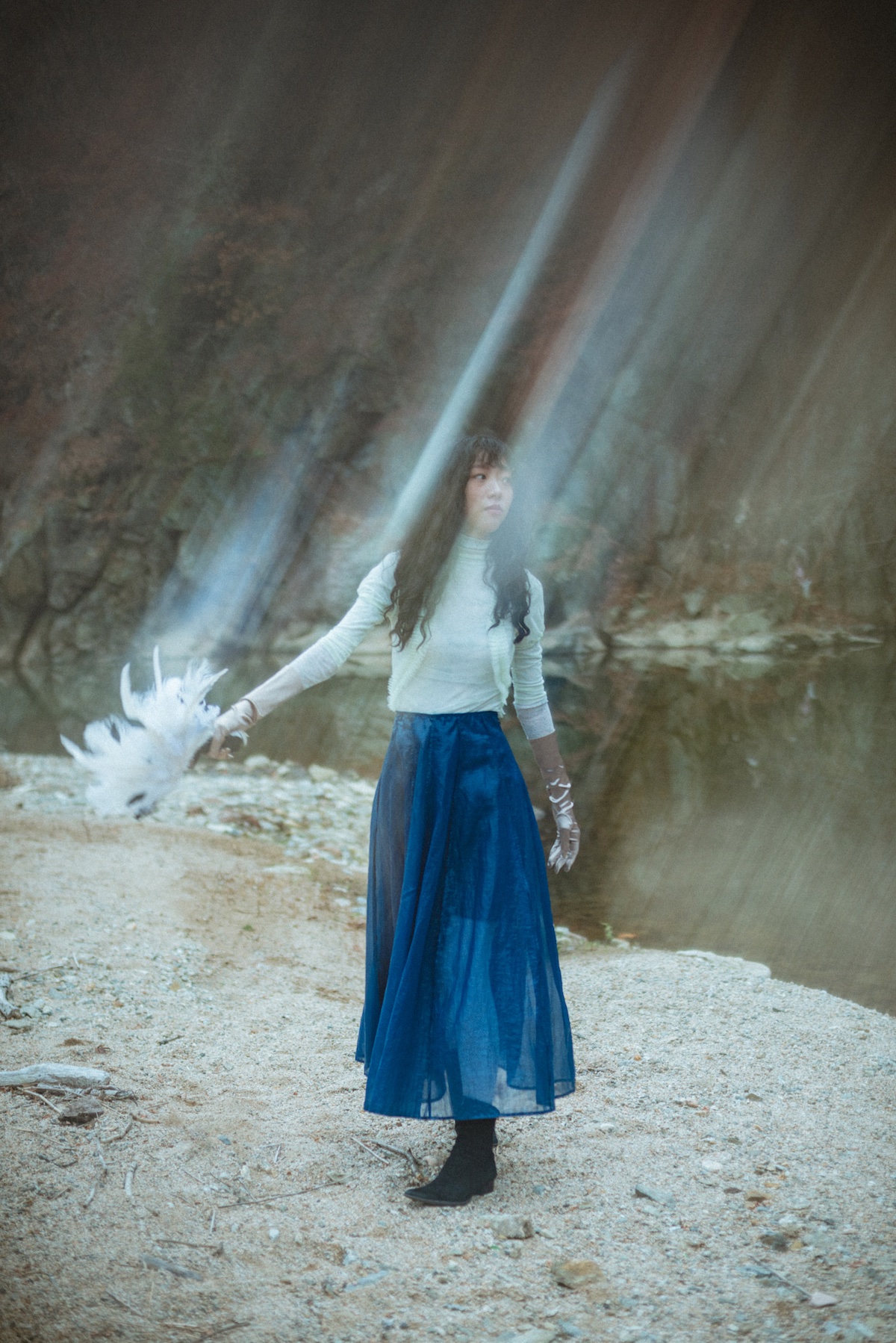
Brimming with beautiful self-reflections and unapologetic about mental health, Kookaburra invites us to join eundohee and dwell in our own depths.
The South Korean singer/songwriter leans into the deep end of life, pulling herself out of her own slump by sheer force of will and a little musical magic: How can one not smile while listening to the sweeter sounds of “She & I,” taking in the moving, descriptive visuals of “Hummingbird,” or soaking up the tender melodies and rich, radiant harmonies of the aptly-titled “Surrender”?
eundohee has opened up a new world for herself and for listeners through these five songs. It’s a soul-stirring, breathtaking journey for the ears and heart alike, and one that, without question, marks a fresh chapter and new beginning for eundohee herself.
“I hope all the lyrics I wrote on this record will be helpful for the mental health of people who might suffer from depression like me,” she shares. “I talked about many different emotions throughout the songs, the message I want to convey is that it is normal to have these emotions. This is really a message to myself, as well as to others. After releasing ‘Hummingbird,’ I listened to it many times myself, just to help me calm down and remember what I said. I hope my lyrics can help people who are similar to me.”
Experience the full record via our below stream, and peek inside eundohee’s Kookaburra EP with Atwood Magazine as the artist goes track-by-track through the music and lyrics of her debut EP!
— —
:: stream/purchase Kookaburra here ::
Stream: ‘Kookaburra’ – eundohee
:: Inside Kookaburra ::
— —
Nothing Lasts Forever
I read the book called [Midnight Library] and there is a quote by Henry David Thoreau that says “It’s not what you look at that matters, it’s what you see”. It made me think about so many things, so I started to write lyrics about them. Plus, I was doing meditation a lot at this time, naturally, I talked about how to deal with emotions as well.
Also, I wanted to make a song that is a bit lighter than my previous songs. So I recorded some wicked guitar lines so as not to be too serious.
미드나잇 라이브러리 라는 책을 읽었는데 헨리 데이비드 소로의 ‘중요한 것은 무엇을 보느냐가 아니라 어떻게 보느냐’ 라는 인용구가 있었어요. 이 말을 읽고 많은 것들에 대해 생각이 들었고 가사로 옮겨적기 시작했어요. 게다가 그때 저는 명상을 많이 하고 있던 시기라 자연스럽게 어떻게 감정을 다뤄야하는지에 대해서도 이야기를 하게 되었던 거 같아요.
평소 조금 느리고 잔잔하던 곡을 쓰던 반면 이번 곡에서는 좀 더 가벼운 느낌의 곡을 쓰고 싶었어요. 그래서 너무 심각해보이지 않도록 약간 장난스러운 기타 라인들을 녹음을 하기도 했어요.
She & I
I wrote this song after talking about my anxiety with my mom. My mom got stressed out a lot because my dad always put him before our family when we lived all together. When I was 5 or 6, I liked to memorize lyrics so she used to write them down. One day, we were doing that as usual but for some reason, I was able to feel her loneliness. I was too young to realize what the feeling was so I didn’t think of it that much. My parents got divorced when I was 16 years old and my siblings and I decided to live with my mom. After my dad left, he wasn’t in a good place so he made a lot of mistakes, which hurt the rest of the family members. I was anxious and scared and at that time, I was in high school so I couldn’t focus on anything. I was too disappointed with him.
As time passed, I became an adult. I still suffered from anxiety and him. I had a chance to talk about it with my mom so I told her everything like how I had felt or thought about him. She looked quite surprised and after a long conversation, she said, “I didn’t know you’ve been going through that, and you know he wasn’t in a good place and what kind of person he is.” And then she embraced me saying to me, “It’s time to let them go, you deserve it.” It was a memorable thing, so I decided to channel it into this song.
이 곡은 제 불안에 대해서 엄마와 이야기를 나눈 후 쓰게 되었어요.
엄마는 아빠가 가족을 우선시 하지 않아서 스트레스를 많이 받았어요. 제가 5,6살때쯤 저는 가사를 외우는 걸 좋아했는데 엄마는 자주 제가 좋아하는 가사들을 적어주셨어요. 하루는 똑같이 엄마가 가사를 적고 있었는데 왜인지 엄마가 너무 외롭게 느껴졌어요. 그때는 너무 어려서 그게 어떤 감정인지 저는 몰랐고 더 생각하지 않고 넘어갔어요.
저희 부모님은 제가 16살때 이혼을 했고 저와 언니, 동생은 엄마와 지내기로 했어요. 아빠는 그 이후 상태가 좋지 않아서 실수를 하기도 했었고 저희는 상처를 받기도 했었어요. 그때 학교에 있었지만 저는 불안하고 무서워서 아무것도 집중할 수 없었어요.
시간이 좀 지나서 저는 성인이 되었고 여전히 불안함에 고통받고 있었어요. 그리고 저는 엄마와 이 불안에 대해 이야기할 시간이 있어서 제가 어떻게 느끼는지 생각하는지 이야기를 했어요. 엄마는 제가 그렇게 느껴서 조금 놀라워 했고 많은 대화를 했어요. 엄마는 제가 그런 감정을 느꼈는지 몰랐다고 이야기를 하며 아빠는 원래 어떤 사람인지 너가 잘 알고 있지 않느냐며 그땐 상황이 좋지 않다고 말을 했죠. 그리고 이제 그 일은 잊어도 된다며 그래도 된다고 저를 위로해 주었어요. 이 일은 꽤 기억에 남았고 저는 이 감정들을 곡에 옮기기로 했어요.
Ah Ha Ha
I wanted to make an upbeat but slightly sarcastic song. I didn’t intend to, but I overheard a conversation in a cafe between two colleagues discussing how to be successful at work. One was an old man who seemed like he had spent a long time in a company, and another one was a young man who just started his career. As you might expect, the old man didn’t seem to respect the young man’s opinions. I had also experienced this kind of thing in my life.
이 곡은 조금 빠르고 그리고 조금은 비꼬는 듯한 느낌을 만들고 싶었어요. 그러려고 했던 건 아닌데 어쩌다 저는 카페에서 직장동료의 대화를 엿듣게 되었어요. 직장에서 성공하려면 어떻게 해야하는지 같은 것들에 대해 이야기 하고 있었는데 한 분은 회사에서 오래 일한 것 같은 나이든 분이었고 한분은 이제 막 일을 시작한 신입사원 같았어요. 어느정도 예상한듯 상사는 신입사원의 의견을 존중하지 않고 듣지 않았어요. 저 또한 그런 경험을 살면서 겪었었죠.
Hummingbird
Hummingbird symbolizes the enjoyment of life and the lightness of being. For me, a hummingbird was what I wanted to be. I often say that ‘Hummingbird’ is my favorite song from my new EP, because the lyrics are hopeful and convey the fact that there should be no pressure to become something. Of course, I’d be happy to become something I want to become and achieve the things I want to achieve, but I have realized that these things are not all that important.
I wrote this song before I made ‘Nothing Lasts Forever’ so those two tracks are kind of similar, as with that song, I was aiming to make something with a lighter, happier, and calmer sound overall.
허밍버드는 삶의 즐거움과 존재의 가벼움을 상징한다고 해요. 저한테는 제가 되고싶은 존재였죠. 저는 ‘Hummingbird’가 제 새 EP 중 가장 좋아하는 곡이라고 자주 말해요. 가사가 희망적이고 무언가 되어야한다는 부담이 없기 때문이에요. 내가 원하는 무언가가 될 수 있다면 너무 좋겠지만 그건 그렇게 중요하지 않다고 깨달았어요.
이 곡은 ‘Nothing Lasts Forever’를 쓰기 전에 쓴 곡이에요. 그래서 두 곡은 조금 비슷해요. 좀 더 밝고, 가볍고, 행복하지만 전체적으로 차분한 사운드를 만들고 싶었어요.
Surrender
I focused on the lyrics of this song. I was in a slump at the beginning of 2022. All of a sudden, I couldn’t listen to my songs and I hated my voice, lyrics, and everything. I compared myself to other singer-songwriters. Some of them are friends so I envied them and I thought I was incompetent as an artist. But I tried to think positively that at least if I try to be better, there are other ways to get over it. So I channeled my energy into this song.
저는 이 곡은 가사에 집중하려고 했어요. 저는 2022년초에 슬럼프가 있었는데 정말 갑자기 제 음악들을 들을 수 없고 제 목소리,가사 그 외 전부 다 너무 싫었어요. 또 저는 다른 아티스트들과 저를 비교하기도 했는데 그 중엔 친구들도 있었고 저는 그 친구들을 부러워하기도 했어요. 또 제가 아티스트로써 무능하다고도 생각했죠. 그래도 긍정적으로 생각하려고 노력했어요. 적어도 더 나아지려고 노력하면 이러한 슬럼프를 이겨낼 수 있는 방법이 있을거라고 생각했죠. 이 곡도 다른 곡들처럼 그런 생각들을 곡에 옮겼어요.
— —
:: stream/purchase Kookaburra here ::
— — — —
Connect to eundohee on
Facebook, Instagram
Discover new music on Atwood Magazine
© Chris da Canha
:: Stream eundohee ::

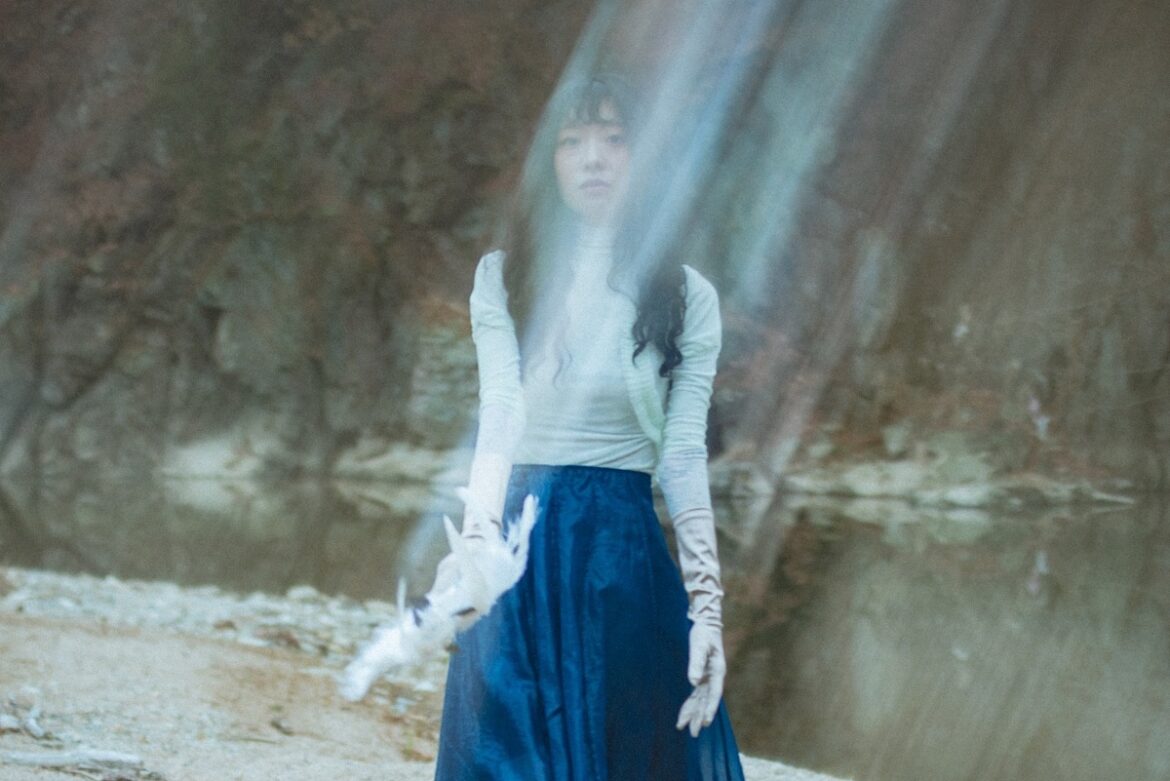
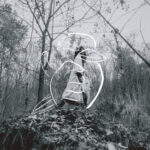
 © Chris da Canha
© Chris da Canha